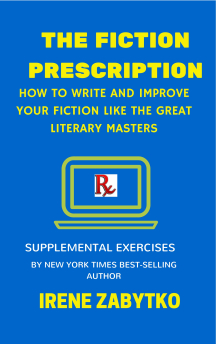INSTANT WRITER
If you zoom around the Internet, and identify yourself as a writer, no doubt you will see ads popping up that are targeted just for you.
Some ads may be useful especially for book promotions, or subscribing to writing magazines, or (very popular these days) Zoom events for author readings.
But there are many that are advertising classes or webinars or both on “how to write”–usually, novel writing.
It’s fine and maybe a very good idea to learn how to formally write fiction and one can even apply to M.F.A. (Master of Fine Arts) programs in America to get a degree in such things.
These academic programs take much time, effort and perhaps after two years or more, you may have a salvageable and saleable novel or short story collection.
[image error]Photo: Gerd Altmann
However, the ads I mentioned are not advocates of the old fashion, old school ways of taking writing classes.
Rather, these ads are promising that with only a few proven shortcuts you, the customer (as opposed to the student), you too can be a writer, and can write your book in a month, sometimes over the weekend.
Hours even!
Out of curiosity, I attended a few of these free webinars (which are all sales pitches), and I have to confess I was appalled.
The persons hosting the webinar generally admit they are not “real” writers, and even hate formal fiction writing, let alone have read or have any connection to the great classics or contemporary writers.
Some even gleefully admitted they flunked college English classes.
Instead, they are shoving out quick, easy ways to write a book so that you, the customer, can sell it online and make loads of money–even “while you sleep” (I always hear that refrain in the pitch).
[image error]
Don’t worry about plot structure, or character development, or creative expressions that reflect or feature any deep thinking, or artistic talents, or even originality.
Just sign up for a class and learn how to write in no time at all. Then sell, sell, sell.
Their classes are quite expensive and apparently, what is offered is not so much writing fiction as an art form or the basic craft elements to master, nor any mentions of great writers, but mostly templates where you, the customer, fill in the blanks and voila!, a novel is born.
And you can do it fast, easy and all for $99.99 per month (or thereabouts–read the fine print).
My second thought (the first is very insulting) after hearing and watching these hucksters is: what is the hurry?
[image error]Photo: Andrea Piacquadio
Why do people fear taking their time writing a great novel or a great short story?
Maybe this is appealing to genre writers who tend to use formulaic plots and the same characters to develop a series and the end product for them is not so much creating world class literature but a line of products to sell.
But these “classes” are so deceptive because it distils and cheapens the art and craft of writing fiction to mere simplistic patterns of prattle, and fluff.
No wonder there is so much bad writing on the Internet.
[image error]Photo: Ketut Subiyanto
Sometimes bad writing sells well, but overall propagating it through these types of courses only pollutes the well of good writing, or the readers’ abilities to discern good writing if they are continuously fed a diet of shlock and crap.
Another pernicious result is that people who shell out their money will believe that they are able to write in a matter of minutes.
There is no appreciation or respect for the truly hard work and evolving growth in the writing process that fiction demands.
Nor is there a catalyst for the writer to challenge themselves to think and write with originality to go beyond the creative limitations when the end product is to sell and make money.
Of course I think writers should make money if that is their aim. We should be paid for our published works.
But I also believe that a writer should write with the deliberate consciousness and respect that they are performing and expressing an art form as well as a craft.
This takes time to develop and nurture. This takes reflection, and study mostly by reading other great writers, and then forming one’s own style into the story by shaping it over time and refinement.
In addition, it takes patience, commitment, and practice to master becoming a writer.
Doing it all in a weekend is a gross disservice to the writer, the reader, and ultimately, the world.
[image error]Graphic: Eric Perlin
The only one that truly profits is the guy giving the webinar.
Writing Wisdom:
“I write entirely to find out what I’m thinking, what I’m looking at, what I see, and what it means.”— Joan Didion, American Novelist, Memoirist, Essayist.
Cheers, Irene
P.S. Need help and inspiration in writing GREAT fiction?

Find both in my writing guidebook: THE FICTION PRESCRIPTION: HOW TO WRITE AND IMPROVE YOUR FICTION LIKE THE GREAT LITERARY MASTERS.
NEW! Now in paperback: https://amzn.to/2WwRXgE
E-Book: http://amzn.to/211kQhZ
PDF: www.irenezabytko.com P.S. Need help and inspiration in writing GREAT fiction?
Catch my new and public blog posts and AN AMERICAN WRITER IN UKRAINE BLOG SERIES at www.irenezabytko.com and irenezabytko.wordpress
SUBSCRIBE to www.irenezabytko.com for weekly WRITING WISDOM advice.
AND THAT’S NOT ALL!
[image error]
New subscribers will get a free copy of 100 LITERARY CLICHES TO AVOID, SCORN AND DELETE (VOLUME 1).
Humorous and helpful! Plus my report on “The 7 Deadly Sins of Rookie FictionWriters.”
© 2020 by Irene Zabytko, all rights reserved.



